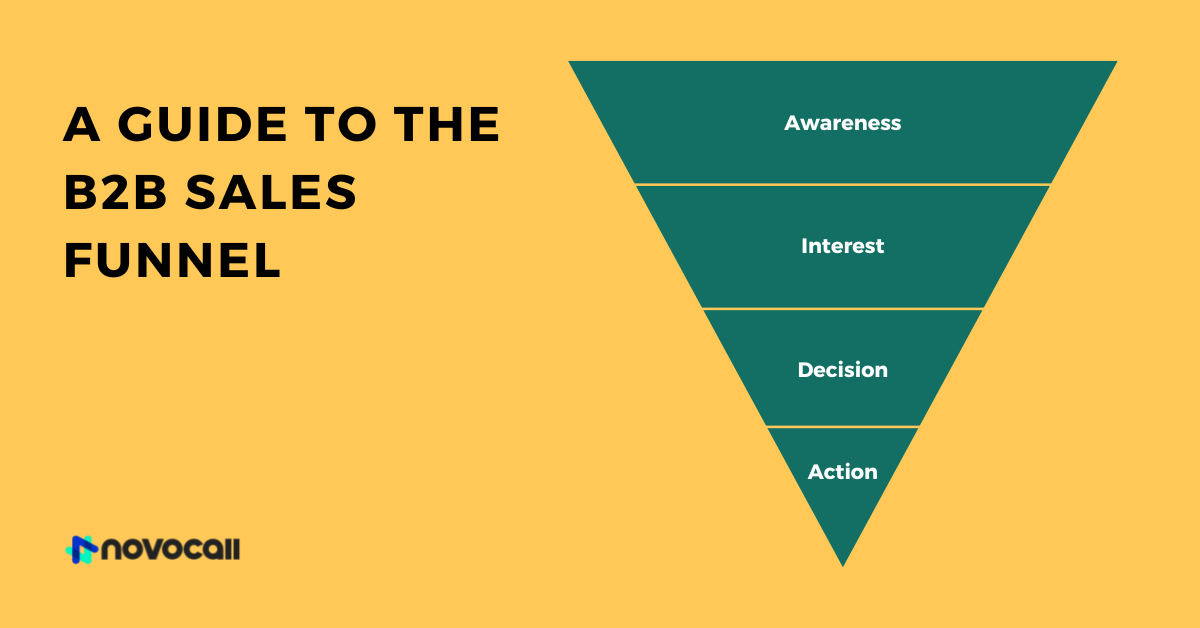


Start driving better conversations.
Novocall will be your new favorite business phone system.


It’s an unspoken rule not to sell to your customer on the first call. It’s called a cold call for a reason — your prospects don’t know you yet and you’re only planting the idea of your product or service in their head.
That said, follow-up calls are when the real selling begins. It’s the start of the sales cycle. It’s when the prospect starts to slowly become a lead.
But, it’s important to note that not all prospects will say ‘yes’ during your follow-up call, and not all of them will say ‘no’.
Each prospect will have their own preferences and needs, which requires reps to be fully adaptable to establish a meaningful relationship with the prospect.
So, to hone your skills to make the perfect follow-up call, here are 5 effective ways to help you change for the better. Let’s dive right in!
Statistics show that 44% of salespeople give up after one follow-up call. However, By being more persistent, sales reps can increase the conversion rate by up to 70%.
“While it’s important to be persistent about why you’re calling people for a follow-up, it’s also important to give your clients space,” says Jesse Warble, a business writer at UK Writings and Oxessays.
“You can’t push too hard when calling for a follow-up. If you do, chances are, you’ll get a screaming client demanding that you stop calling them. You don’t want that to be the highlight of your caller-client relationship.”
Plan your follow-up calls strategically by allowing some space between each call. For example, if your customer doesn’t answer the first follow-up call, dial again after an hour. If there’s no answer, wait for a few more hours.
As you can see, the call rep doesn’t pester the prospect with a multitude of follow-up calls every five minutes. Remember, you want to make a good impression on the prospect so that they have a legitimate reason why to continue their interest in your company’s product or service.
Also, make sure to find the best time to call to increase your chances of getting an answer.
Believe it or not, email is still important when communicating with clients.
Emailing your prospects allows you to do the following:
You’re essentially pre-empting your prospect before the follow-up call. Emailing them gives them a window of time on whether to proceed with the follow-up call, if they want to reschedule, or decline the call altogether.
Now, what happens after the follow-up call?
Yup, you guessed it — send them an email!
You’ll need to follow-up that call with an email to highlight what was discussed in the follow-up call, just in case the prospect might have forgotten some of the details. The email should also address the next steps of your correspondence.
Again, allow your clients some space when you follow up with them.
Now, you wouldn’t be calling a prospect without a good reason, right? Prepare a script before the call to let them know why you’re calling.
Here are some examples of good reasons why you’re conducting a follow-up sales call:
Make these reasons known to the prospect. Whatever needs to be addressed, bring it up.
It’s best to practice your script before making the call so that there’s little to no awkwardness in the conversation (AND less headache on the prospect).
Also, look into how you’re addressing the prospect and be mindful to avoid too commonplace statements such as:
Granted, these statements aren’t poor, but again you don’t want to sound robotic or dull to the person on the other end of the line.
You’d be surprised how sounding warm and conversational can turn things around in a blink of an eye. Even if the prospect isn’t interested in what you have to say, you’ll still be doing your job at making the follow-up call a success.
“Customer relationship management (CRM) is vital to making follow-up calls effective,” says Andrew Davis, a sales manager at State of writing and Paper Fellows.
“With that said, there are many CRM tools that you can use to track follow-up tasks and better warm your prospects.”
CRM tools can help streamline the following tasks:
As you can see, there are many tasks that CRM tools can tackle without having to waste time and labor.
With more time on hand, sales reps can focus on engaging their prospects and not have to juggle tedious tasks. Furthermore, CRM tools keep everything in one place, so that reps aren’t scrambling to pull up relevant prospect information before a follow-up call.
So, there you have it!
Follow-up sales calls don’t have to feel like pulling teeth. By following these 5 tips, you’ll be mastering the skill of following up with various clients.
Now, this is not to say that all calls will be a success. Even if you follow these tips closely, you aren’t guaranteed the same results for every call you make. There will still be plenty of changes and different scenarios — the important thing here is to be flexible and adapt quickly.
We hope that this guide will help you sharpen your skills when making follow-up calls to improve your calling rates and sales!

Sara is a writer and editor at Order research paper service. She writes articles about marketing, sales, and coding trends.
Related articles
Subscribe to our blog
Get insights & actionable advice read by thousands of professionals every week.

